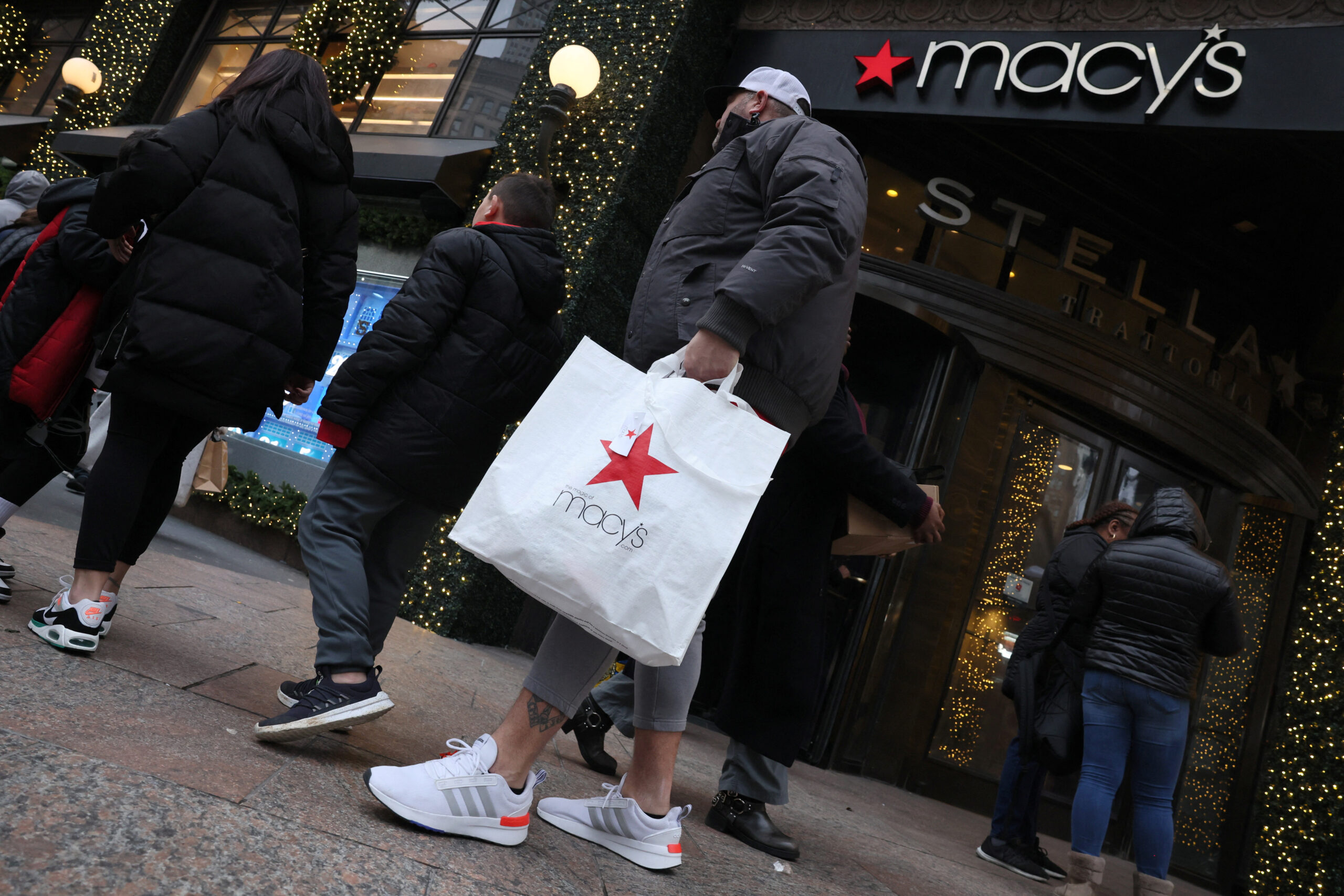On Wednesday, Macy’s (NYSE: M) lowered its annual net sales forecast, blaming higher promotions and weak demand for upscale apparel and accessories from deal-hungry consumers in the U.S., sending its shares down 12%.
It also reported a bigger-than-expected fall in net sales for the second quarter, setting a somber tone for the busy back-to-school and holiday shopping seasons.
Department store chains have seen few takers for men’s apparel, home decor goods, and accessories like handbags, forcing them to ramp up discounts and offers to attract cost-conscious consumers.
“As the quarter progressed, our customer became more discriminating, which we attribute to ongoing macroeconomic uncertainty and an increasingly complex news cycle,” said CEO Tony Spring.
In contrast, big-box retailer Target has flagged “meaningful” improvement in sales trends of apparel and other discretionary purchases. Both Walmart (NYSE: WMT) and Target (NYSE: TGT) also raised their annual profit forecasts on robust demand for lower-priced essentials.
“Unlike Target and Walmart, Macy’s sits in a world that is still disenfranchised by consumers being more discerning about price,” said Art Hogan, chief market strategist at B Riley Wealth.
“The good news is this is not a reflection on the U.S. consumer per se as much as it is about the American consumer’s preconditioned tone of looking for value.”
Macy’s (NYSE: M) now expects annual net sales of $22.1 billion to $22.4 billion, compared with its prior forecast of $22.3 billion to $22.9 billion.
Second-quarter net sales fell 3.8% to $4.94 billion, compared with analysts’ expectations for a 0.23% fall to $5.12 billion, according to LSEG.
In July, Bloomingdale’s parent terminated buyout talks with an investor group comprising Arkhouse Management and Brigade Capital on grounds that the bid failed to provide “compelling value”. The offer was for $6.9 billion.
Excluding items, its second-quarter adjusted earnings per share of 53 cents beat expectations of 30 cents, as margins grew due to lower costs.
The company now expects to close 55 stores in 2024, up from about 50 estimated earlier, as part of its three-year cost-saving plan.
(Source: ReutersReuters)













